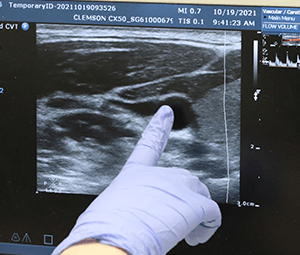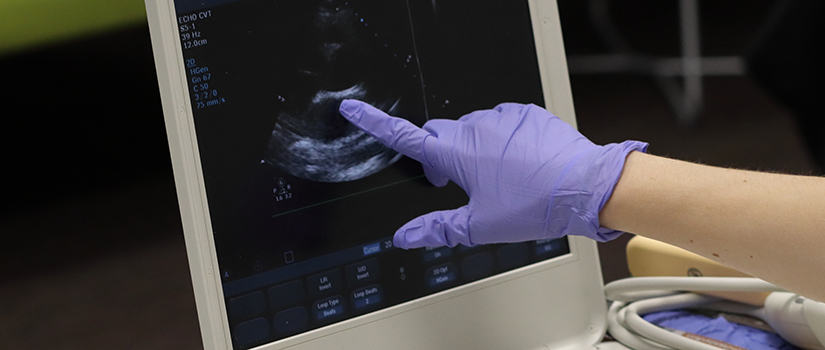
JOB GROWTH
The United States Bureau of Labor Statistics projects 14% growth in cardiovascular technology jobs by 2030.
The cardiovascular technology degree program provides a career path to the healthcare sector with a broad education that prepares you for success. You’ll develop problem-solving, communication and analytical skills as you prepare to work in cardiovascular technology and related fields.
In addition to fundamental scientific knowledge, you will have access to professional certification through CAAHEP (Commission on Accreditation of Allied Health Education Programs)-accredited clinical partners. You’ll also receive practical training that fulfills the requirements to sit for national licensure exams.
At the University of South Carolina, cardiovascular technology is a unique, interdisciplinary bachelor’s degree program that combines rigorous coursework with extensive hands-on clinical experience. Typical entry-level education for cardiovascular technologists is an associate degree, but in our program, you’ll gain experience in hospitals and clinical settings and graduate equipped to pursue hospital management positions, graduate school, physician assistant programs or medical school.
A bachelor's degree will give you more job security, more flexibility and more earning power in a growing field. The Bureau of Labor Statistics predicts overall employment of cardiovascular technologists to increase 14 percent by 2030.
In the cardiovascular technology degree program, you’ll work hand in hand with outstanding McCausland College of Arts and Sciences faculty in state-of-the-art research facilities. Your advisor will help you build a program of study that you’re interested in, help you make progress toward your degree and guide you in your career development.
What Can I Do With a Degree in Cardiovascular Technology?
When you graduate, you’ll be ready for an entry-level position in a cardiovascular diagnostic department. As a licensed cardiovascular technologist, you’ll be an extension of the cardiologist: You’ll use cutting-edge machinery to produce images of the heart and blood vessels that guide diagnoses and treatments of cardiovascular diseases. You might review a patient’s history, perform cardiovascular diagnostic and therapeutic procedures or analyze patient data for interpretation by a physician.
But the combination of rigorous coursework and hands-on clinical experience opens avenues for further study and advancement. If you're interested in earning a medical degree, a PA degree, or graduate degrees in health administration, your bachelor’s degree in cardiovascular technology provides both an excellent academic background and the immersive experience many top schools treasure.
